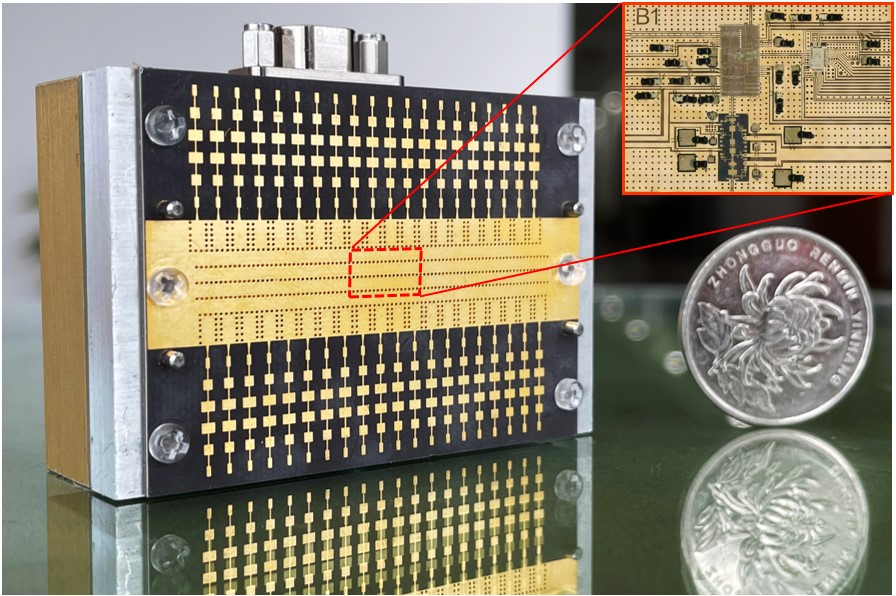- Home
- About Us
- Students
- Academics
-
Faculty
- Electrical Engineering
- Automation
- Computer Science & Engineering
- Electronic Engineering
- Instrument Science and Engineering
- Micro-Nano Electronics
- School of Software
- Academy of Information Technology and Electrical Engineering
- School of Cyber Security
- Electrical and Electronic Experimental Teaching Center
- Center for Advanced Electronic Materials and Devices
- Cooperative Medianet Innovation Center
- Alumni
-
Positions
-
Forum
News
- · Shanghai Jiao Tong University professors Lian Yong and Wang Guoxing's team have made remarkable progress in the field of high-efficiency pulse neural network accelerator chips.
- · AI + Urban Science research by AI Institute was selected as cover story in Nature Computational Science!
- · The first time in Asia! IPADS's Microkernel Operating System Research Wins the Best Paper Award at SOSP 2023
- · Delegation from the Institution of Engineering and Technology Visits the School of Electronic Information and Electrical Engineering for Journal Collaboration
- · Associate professor Liangjun Lu and research fellow Jiangbing Du from Shanghai Jiao Tong University made important advancements on large capacity and low power consumption data transmission
Major Progress in the Research of Heterogeneously Integrated Millimeter-wave Radar Systems
Recently, the research group of Academician Jun-Fa Mao and Professor Liang Zhou of the Department of Electronic Engineering, School of Electronic Information and Electrical Engineering published the latest research results of a low-loss heterogeneously integrated W-band radar system in the IEEE Journal of Solid-State Circuits (JSSC).

The IEEE JSSC is a top-level journal in the field of integrated circuits and publishes the latest technological progress and achievements in the field of integrated circuit design.
This study heterogeneously integrated a three-dimensional millimeter-wave radar with silicon-based phase-locked loop chip, SiGe transceiver chip, GaN power amplifier chip, antenna, capacitors, and other passive components on the basis of an in-house silicon-based MEMS photosensitive composite-film fabrication process. The radar detection range is larger than 800 meters, the highest resolution is better than 0.08 meters, and the weight is only 78 grams.
The breakthroughs in key technologies, such as precise alignment of multiple chips and fabrication of micropatterns in multilayer dielectrics, remarkably shorten the interconnection length between chips and passive devices, reduce interconnection losses and overcome the compatibility of the interconnection structures between compound semiconductors and silicon. Simultaneously, the crosstalk between transmissions and electromagnetic compatibility between chips is remarkably reduced.
At present, Moore’s Law has faced multiple challenges of physics, technology, and cost limits. Integrated circuits are struggling to develop along the path of size reduction predicted by Moore’s Law but urgently need to open up new directions and continue to develop by bypassing Moore’s Law. The three-dimensional heterogeneous integration can break through the performance and functional limits of a single-semiconductor process circuit. Moreover, this integration can realize integrated circuits from silicon or compound semiconductor single-homogeneous process integration to heterogeneous integration from planar integration to three-dimensional integration, which is the development of integrated circuits in the post-Moore era. The mainstream direction of our country’s integrated circuits is also a breakthrough and historical opportunity for developing China’s integrated circuit. The developed process and design technology will surely promote the rapid development of heterogeneous technology.

Xiao Yang, Yin-Shan Huang*, Liang Zhou*, Zhe Zhao, Dong-xin Ni, Cheng-rui Zhang , Jun-Fa Mao, Jiang-An Han, Xu Cheng, and Xian-Jin Deng, “Low-Loss Heterogeneous Integrations with High Output Power Radar Applications at W Band”, IEEE Journal of Solid-State Circuits, 2021.DOI: 10.1109/JSSC.2021.3106444.
-
Students
-
Faculty/Staff
-
Alumni
-
Vistors
-
Quick Links
